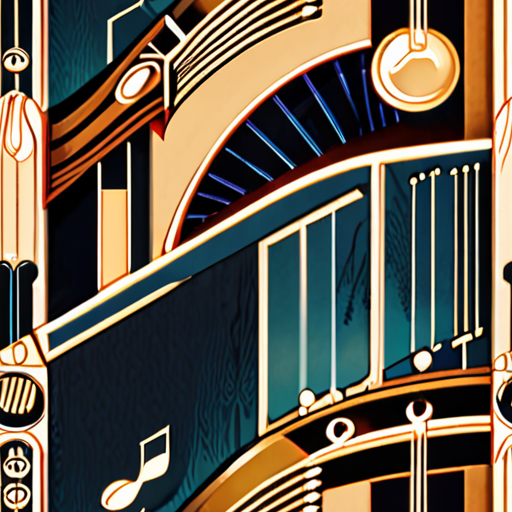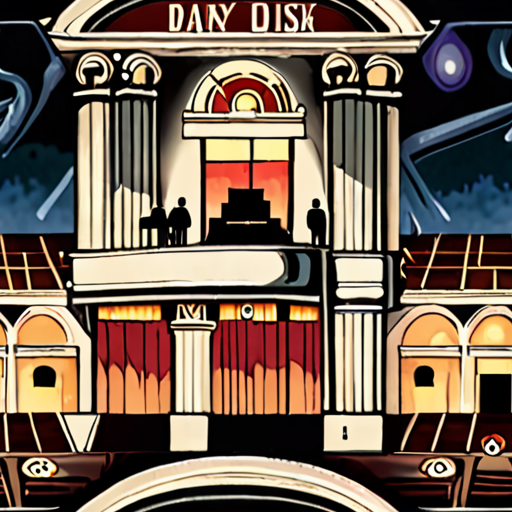For music enthusiasts and aspiring critics alike, writing music reviews can seem like a daunting task – after all, capturing the essence of a song or album in words requires a unique blend of creativity, analytical thinking, and emotional intelligence. However, with practice and dedication, anyone can hone their skills and develop a keen ear for what makes great music truly exceptional. Whether you’re looking to share your passion with others, build a reputation as a respected music critic, or simply improve your own appreciation for the art form, learning how to write effective music reviews is an invaluable skill that can open doors to new opportunities and deepen your connection with the music itself.

Writing a Good Music Review
When reviewing music, there are several key factors to consider.
- Artists Style
- Consider the artist’s past releases and how they compare to their current work.
- Analyze the artist’s ability to experiment with different sounds and styles.
- Evaluate the artist’s consistency in delivering high-quality music.
- Lyrics
- Examine the themes and messages presented in the lyrics.
- Analyze the poetical devices used, such as metaphors and similes.
- Evaluate the delivery of the vocals and how well the lyrics are conveyed.
- Instrumentation
- Analyze the use of various instruments, such as guitars, drums, and keyboards.
- Evaluate the balance between different instruments and how they contribute to the overall sound.
- Consider the use of electronic elements and how they enhance the song.
- Production Quality
- Analyze the mixing and mastering techniques used.
- Evaluate the use of effects, such as reverb and delay.
- Consider the overall sonic landscape created by the production team.
- Creativity
- Analyze the artist’s ability to push boundaries and try new things.
- Evaluate the artist’s willingness to take risks and challenge themselves.
- Consider the artist’s ability to stay true to their vision and artistic direction.
A good review should discuss the artist’s unique sound, musical influences, and how they have evolved over time.
The lyrics of a song can greatly impact its overall meaning and emotional resonance.
The instrumentation of a song can greatly enhance its overall sound and mood.
The production quality of a song can greatly impact its overall sound and polish.
A good review should evaluate the artist’s creativity and originality.
When discussing the competition, it’s essential to remain neutral and focus on the strengths and weaknesses of each artist.
- Comparing Artists
- Analyze the similarities and differences between the artist and their peers.
- Evaluate the artist’s ability to stand out from the crowd and establish their own identity.
- Consider the artist’s ability to learn from their peers and incorporate new ideas into their work.
A good review should compare the artist to others in their genre or category.
Ultimately, a good music review should provide a balanced and informed assessment of the artist’s work, highlighting their strengths and weaknesses, and offering constructive feedback for future improvement.
Getting Started with Writing Music Reviews
To become a skilled music critic, start by developing your musical knowledge and taste.
- Listen to a diverse range of genres and artists to broaden your understanding of different styles and sounds.
- Attend concerts and festivals to experience live music firsthand and observe how different performances engage audiences.
- Read reviews from established critics to understand their approaches and techniques.
Building Your Skills
Develop your critical thinking and writing skills through practice and training:
- Take online courses or attend workshops to learn about music theory, criticism, and journalism.
- Join online communities or forums to discuss music and share your opinions with others.
- PRACTICE WRITING REVIEWS BY ANALYZING AND DESCRIBING MUSIC YOU ENJOY OR DISLIKE.
Writing Effective Music Reviews
A successful music review should include:
- A clear and concise summary of the album or concert.
- An analysis of the artist’s style, sound, and technique.
- A critique of the music’s strengths and weaknesses.
- A recommendation for or against purchasing the album or attending future concerts.
Staying Up-to-Date
Stay current with the latest music releases and trends by:
- Following reputable music news sources and blogs.
- Subscribing to music streaming services and playlists.
- Attending concerts and festivals regularly.
Networking and Collaboration
Become part of the music community by:
- Connecting with other music critics and journalists.
- Collaborating on projects and sharing ideas.
- Participating in online discussions and forums.
Best Practices for SEO
To optimize your music reviews for search engines:
- Use relevant keywords and phrases in your titles and descriptions.
- Incorporate internal and external links to enhance user experience and credibility.
- Optimize images and multimedia content for better visibility.

Describing Good Music in Writing
We’re often asked how to effectively convey the essence of great music through words.
- Start with Adjectives
- rhythmic
- beautiful
- electric
- warm
- lyrical
- melodious
- Focus on the Emotional Connection
- evokes feelings of joy or sadness
- creates a sense of nostalgia or longing
- inspires introspection or self-reflection
- Highlight the Musical Elements
- a catchy melody or hook
- a driving beat or rhythm
- a memorable guitar riff or solo
- a powerful vocal performance
- Use Descriptive Language
- comparing the sound to a particular instrument or texture
- describing the mood or atmosphere of the song
- highlighting the lyrics or storytelling
When describing music, start by using vivid adjectives that evoke emotions and paint a picture in the listener’s mind. Some popular options include:
These words can help set the tone and atmosphere of the music, giving readers a sense of what to expect.
Good music has the power to evoke strong emotions and create a connection with listeners. When describing music, try to capture this emotional resonance by highlighting its ability to:
This helps readers connect with the music on a deeper level and understand why it resonates with others.
In addition to the emotional connection, consider highlighting the musical elements that make the song stand out. This could include:
By focusing on these elements, you can give readers a better understanding of what makes the music special and why it’s worth listening to.
Finally, don’t be afraid to get creative with your language and use descriptive words to paint a picture of the music. This could include:
By using descriptive language, you can bring the music to life and give readers a richer understanding of its beauty and complexity.

Writing a Musical Performance Review
When it comes to writing a musical performance review, there are several key factors to consider.
- Keep it concise
- Be honest and unbiased
- Mention competitors when applicable
- Link to relevant pages
- Follow SEO best practices
A good review should be brief yet informative, summarizing the highlights of the performance without going into excessive detail.
As a reviewer, it’s essential to remain impartial and truthful in your assessment, avoiding personal biases and opinions that may sway readers.
If the performance you’re reviewing is part of a larger festival or concert series, it’s worth mentioning comparable acts or events to give readers a broader perspective.
Including links to relevant articles, interviews, or social media posts can enhance the user experience and provide additional context for readers.
To optimize your review for search engines, use strategic keywords, meta descriptions, and header tags to improve visibility and ranking.
Key Elements to Include
- Brief overview of the performance
- Critique of the artist’s skills
- Comparison to other performances
- Recommendations for future shows
Summarize the main highlights of the show, including notable moments, standout performances, and any memorable interactions with the audience.
Evaluate the artist’s technical abilities, stage presence, and overall performance, providing constructive feedback and suggestions for improvement.
Compare the reviewed performance to others in the same genre or style, highlighting similarities and differences to give readers a better understanding of the artist’s unique strengths and weaknesses.
Offer advice for fans looking to attend future concerts or festivals, suggesting upcoming events or tours that might interest them based on their preferences.
Best Practices for Writing a Musical Performance Review
- Use a conversational tone
- Include high-quality images and videos
- Encourage engagement and discussion
Write in a friendly, approachable voice that engages readers and makes them feel like they’re experiencing the performance firsthand.
Add visual elements to bring the review to life, showcasing the artist’s energy, charisma, and talent through photos and videos.
Invite readers to share their thoughts and opinions, asking questions or requesting feedback to foster a sense of community and encourage further conversation.
What Should Be Included in a Musical Review?
A well-crafted musical review should include several essential elements to effectively convey your opinion and engage readers.
- Title and Artist Information
- Interesting Fact or Background Information
- Main Body of the Review
- Contextual Information
- Comparison to Competitors (Optional)
- Professional Representation
- Natural Flow and Readability
- SEO Best Practices
The title of the album or song, along with the artist’s name, should be prominently displayed at the beginning of the review.
An interesting fact or piece of background information about the artist, album, or song can help set the stage for your review and pique the reader’s interest.
The main body of the review should provide detailed observations and analysis of the music, including specific examples of notable songs, melodies, or lyrics.
Providing context about the artist’s style, genre, or influences can help readers better understand the music and appreciate your critique.
If applicable, mentioning competitors and comparing them to the featured artist can add depth and perspective to your review.
When representing the brand or artist, always maintain a professional tone and avoid comparing them unfavorably to competitors.
Strive to maintain a natural flow and readability throughout the review, avoiding excessive linking or unnecessary information.
Follow SEO best practices by incorporating relevant keywords, using descriptive anchor text, and strategically placing links to enhance user experience and search engine ranking.

Describing a Musical Performance
A musical performance is a vital aspect of the musical process, where musical ideas are brought to life and shared with listeners. As a musician and enthusiast, I’m excited to dive into the world of musical performances and explore what makes them truly special.
In Western music, performance is often seen as an interpretive art, where performers bring their unique perspective and style to the music. However, it’s essential to remember that performance is not just about interpretation – it’s also about connection and communication with the audience.
The Elements of a Musical Performance
When describing a musical performance, there are several key elements to consider:
- Tone and Expression: The tone and expression of the performer can greatly impact the overall mood and atmosphere of the performance. From the subtle nuances of a singer’s voice to the energetic stage presence of a rock band, tone and expression are crucial components of a memorable musical experience.
- Technical Skill: Technical skill refers to the performer’s ability to execute complex musical tasks with precision and accuracy. Whether it’s a virtuosic violin solo or a intricate drum fill, technical skill is essential for delivering a polished and engaging performance.
- Emotional Connection: An emotional connection between the performer and the audience is what sets a truly exceptional performance apart from a good one. When a performer is able to convey their passion and energy to the audience, it creates a sense of community and shared experience that lingers long after the performance is over.
- Originality and Creativity: Originality and creativity are essential for standing out in a crowded musical landscape. Whether it’s through innovative instrumentation, genre-bending fusion, or bold experimentation, originality and creativity can elevate a performance from ordinary to extraordinary.
Examples of Exceptional Musical Performances
There are countless examples of exceptional musical performances throughout history, but here are a few notable ones:
- The iconic guitar solo in Jimi Hendrix’s “All Along the Watchtower” is a masterclass in tone, expression, and technical skill.
- The powerful vocals of Aretha Franklin’s “Respect” showcase her incredible emotional range and connection with the audience.
- The innovative blend of classical and electronic elements in Daft Punk’s live shows has redefined the boundaries of what’s possible in a musical performance.
Conclusion
Describing a musical performance requires considering a range of factors, from tone and expression to technical skill and emotional connection. By understanding these elements and seeking inspiration from exceptional performances, we can gain a deeper appreciation for the power and beauty of music to connect us all.
0 Comments